Why We Get Tired, Even When We Do Nothing
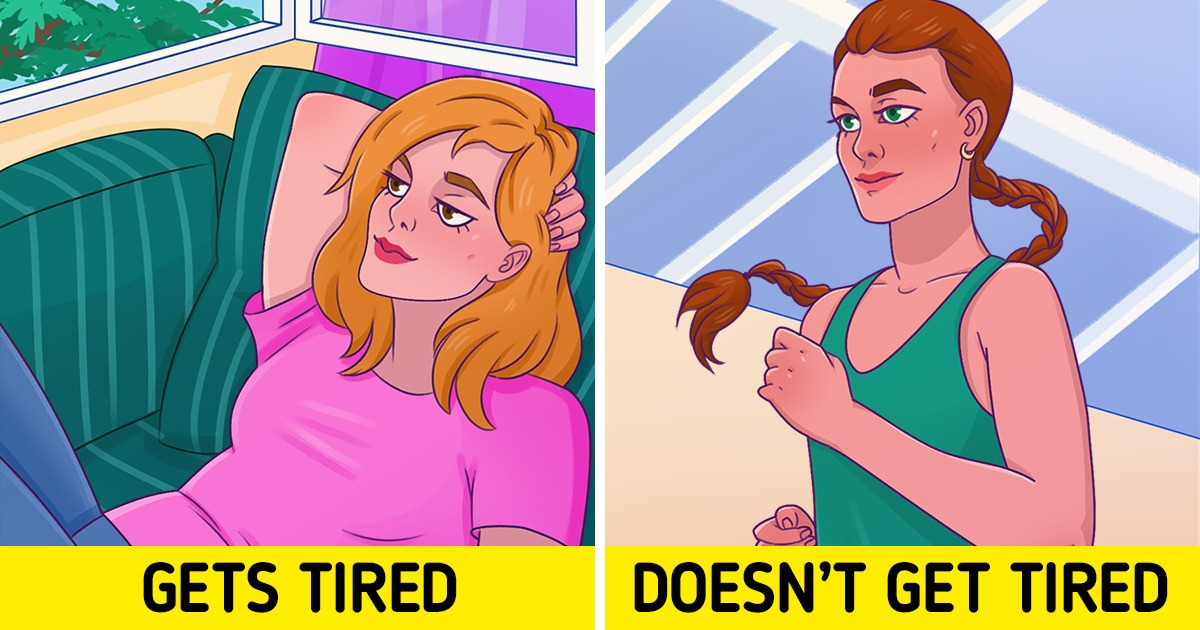
There may be a lot of different factors to take into account when figuring out why we get tired, such as an unhealthy lifestyle, health issues, difficulties at work, stress, and so on.
5-Minute Crafts suggests that we take a look at different causes that might make us feel tired.
❗ Important: This article is for informational purposes only and can’t replace the recommendations of experts.
What fatigue is
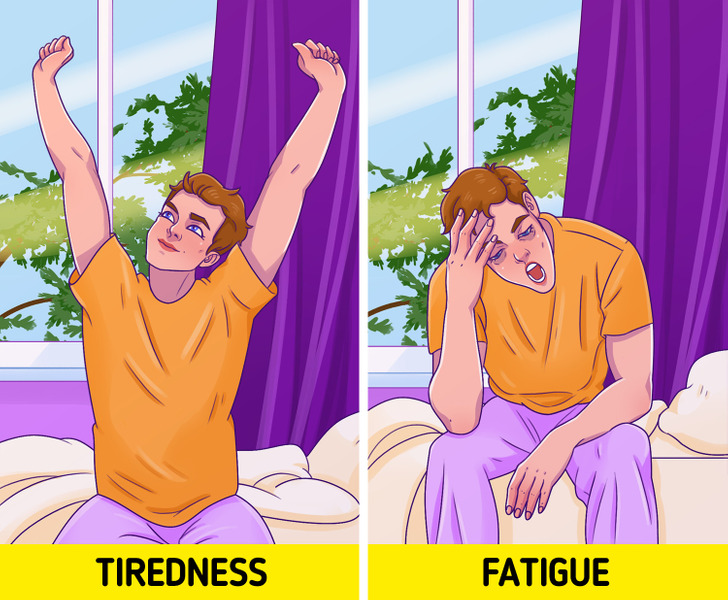
Fatigue is a feeling of constant tiredness that can be both physical and/or psychological. A person of any age might know what it feels like but it’s more abundant in adults.
Fatigue is different from regular tiredness or sleepiness. We all get tired sometimes, but if it doesn’t go away after a good rest or appears independently of physical or psychological strain, it might indicate health issues.
It’s important to remember that fatigue is a symptom that might depend on many things, such as lifestyle, psychological and social factors, general health issues, and some medications.
Impact of lifestyle
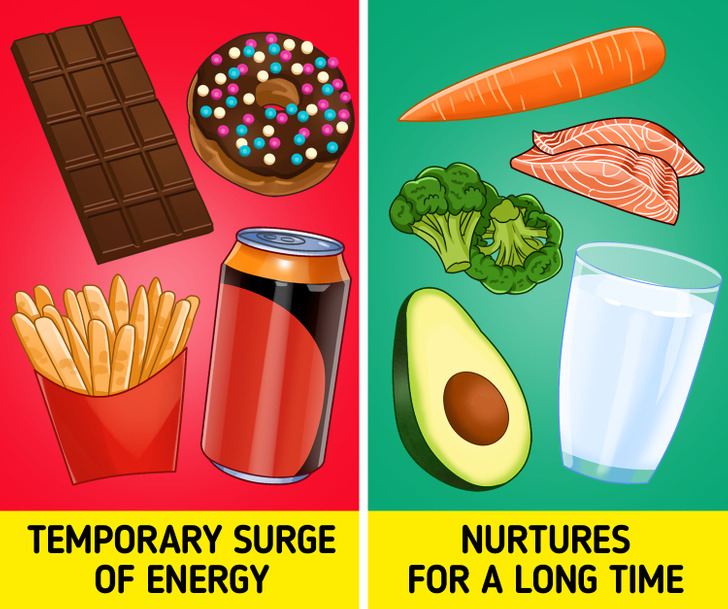
The things we do on an everyday basis may cause general fatigue.
- A lack of sleep or too much sleep — an adult person is believed to require around 8 hours of sleep a night. There might be some sleep problems caused by noisy neighbors or small children, and other factors, such as a messy bedroom.
- Taking things that influence the nervous system (such as caffeine)
- Physical inactivity and bad diet — if a body lacks nutrients, it might have a negative impact on how a person feels. Fast food and caffeine-containing drinks only give a temporary surge of energy.
- Work — Fatigue may be caused by work overload, a stressful environment, burnout, and even having no job at all. For example, a shift schedule may have a negative impact on the circadian rhythms that might lead to permanent fatigue.
Health conditions
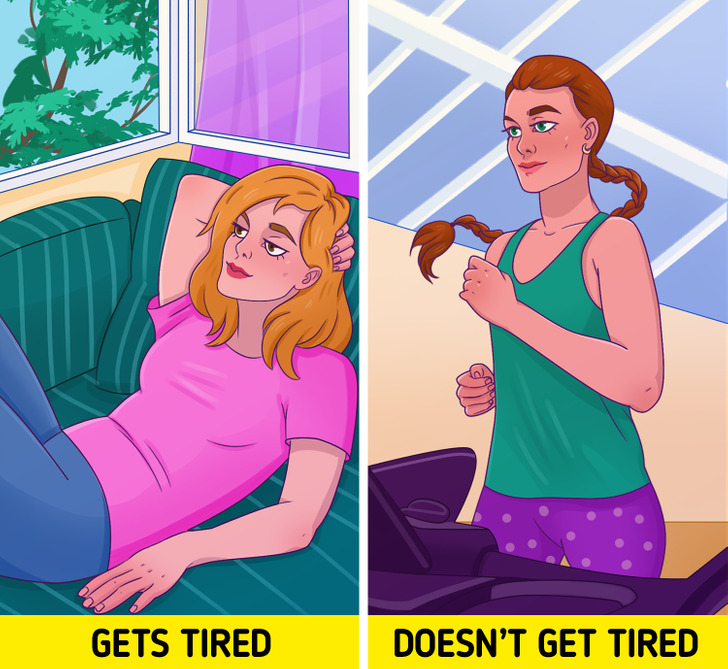
Many different health problems may cause fatigue. Here are some of the most popular ones:
- Diseases and infections — from the flu to something more serious
- Mental states, such as anxiety
- Hormonal imbalance
- Heart and lung problems
- Anemia and vitamin deficiency (such as vitamin D and B12)
- Weight problems and eating disorders
Each one of these issues requires serious treatment. If you think you might have one of them, you should consult an expert as soon as possible.
How to help yourself
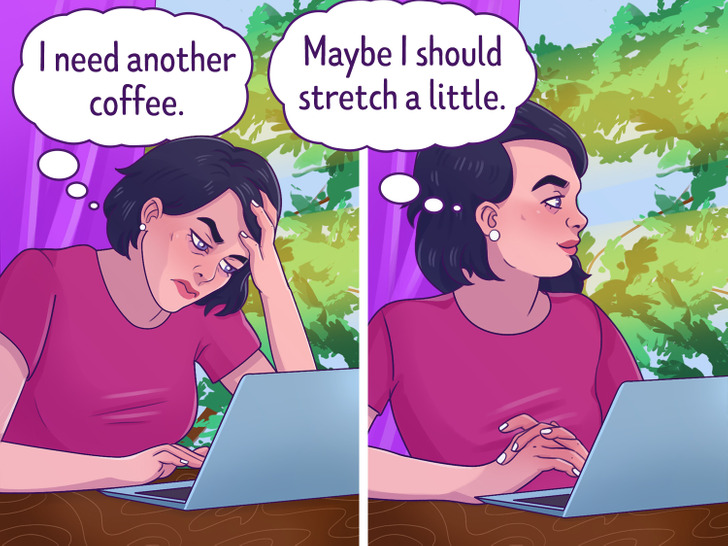
If fatigue is caused by your lifestyle, you can influence it by changing something about your everyday life.
- Try eating healthy foods to support more energy during the day.
- You might feel that exercise is the last thing you need. However, in fact, a small 15-minute walk can reduce fatigue.
- We’ve already mentioned the importance of quality sleep. Try going to bed and getting up at the same time every day. Make sure you relax before going to bed.
- Drink more water. Sometimes fatigue is caused by dehydration.
- Cut down on caffeine. It’s easier to do slowly, like over the course of 3 weeks, for example.